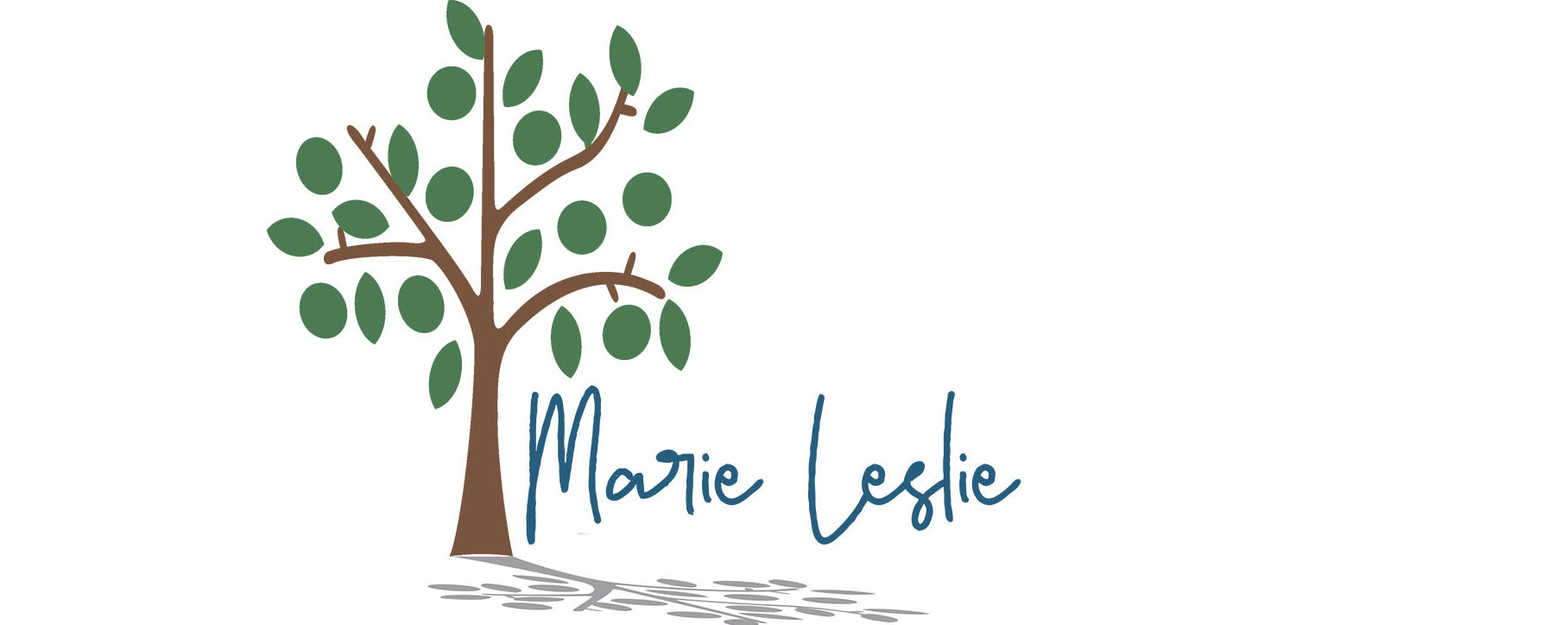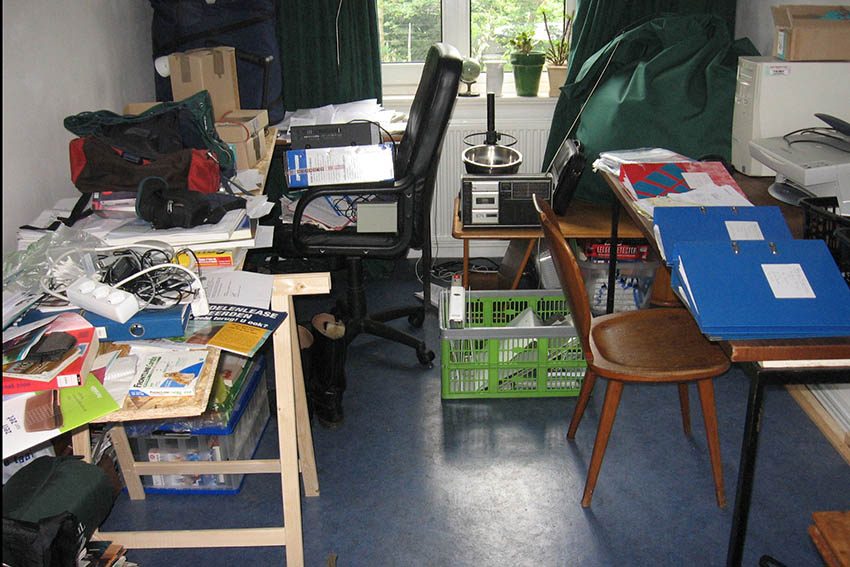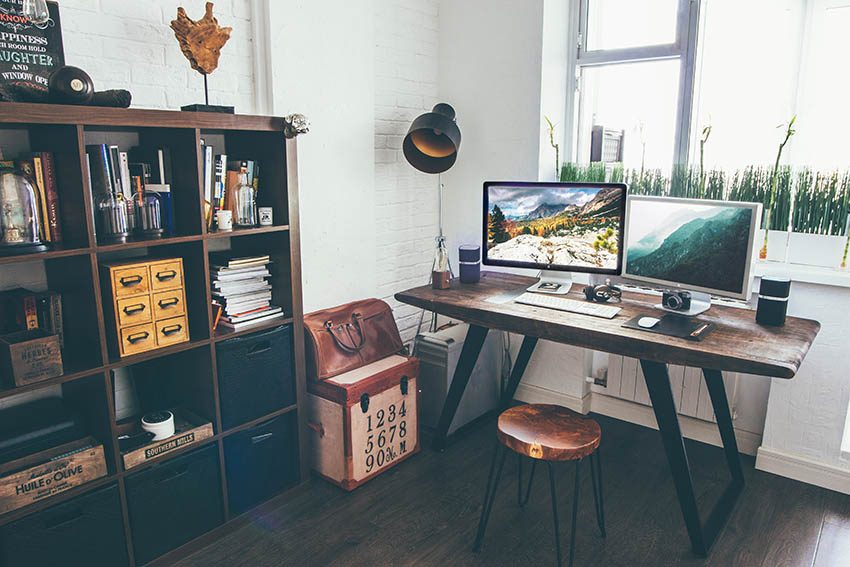How to Develop a Clutter-Free Lifestyle
January is Get Organized Month. I’m not making this up. It’s a real thing. Nothing like putting a little pressure on us when our houses are a disaster with all those Christmas decorations still lurking about. Sounds like a recipe for a New Year’s guiltfest to me.
But seriously. Since you’ve got to do something with the Christmas decorations anyway, January is probably a good month to think about organization. I’ve learned that when most people think of getting organized, two things come to mind: 1) buying a bunch of matching containers, and 2) decluttering.
Let’s talk about decluttering. Specifically, let’s talk about how to develop a clutter-free lifestyle. If you develop a clutter-free lifestyle, you can save yourself some money and you won’t have to go buy a bunch of matching containers to feel like you’re organized.
If you’re a packrat, or even if you’re just one of those people who is in the habit of letting the clutter pile up, even if it’s out of sight in closets and cupboards and cute containers, this isn’t going to be easy.
Decluttering is hard work. Developing a clutter-free lifestyle is even harder. I am not a fan of clutter. I’m pretty sure there aren’t many people in the world who are—but getting rid of it and then keeping it under control takes some work and requires you to develop a clutter-free mindset.
For the record, clutter-free doesn’t have to mean minimalist, nor does it mean getting rid of everything you own. It means (to me anyway), getting rid of the things that don’t serve you, and having a place for the rest of it.
Here are a few things you can do to help you in your quest to develop a clutter-free lifestyle and to live a clutter-free life.
-
Figure out your why. Why are you allowing the clutter to pile up?
Some common answers I hear are:
There’s not enough room in my house (or my office) for it not to be cluttered.
Well, that’s an even bigger reason to develop a clutter-free lifestyle. You’ll be amazed at how much more space you have and how much roomier it feels when the clutter is gone.
I don’t have time to keep my space organized.
Really? And you have more time to spend hunting for stuff under all that clutter? Or extra money to buy things you know you own but can’t find when you need them? Yes, the initial decluttering will take time. You will have to MAKE time for it (finding time is a myth. I’ve looked under the couch cushions and in all the closets—and even in the laundry hamper, and I’ve never found any spare time anywhere). But once you have decluttered and you develop a clutter-free lifestyle, you’ll learn it doesn’t take any longer to be organized than it does to be cluttered.
What if I get rid of something and then I need it later?
How often does that really happen? Yes, it does happen occasionally. But, at least for me, it’s never been something big and expensive that I felt bad about either getting rid of or buying again. And how much of the clutter that’s hanging around is really something you’re going to need at some possible future date? FOMO (fear of missing out) is a dangerous thing. We make lots of less-than-stellar decisions in our lives because we’re afraid of missing out on something. When everything becomes an item of importance, then nothing is really important. Since paper is often the biggest clutter culprit, check out this link for my series on how to organize important documents.
-
Address those why issues so you can remove them from your life.
Once you’ve figured out why you live a cluttered life, you can address those issues and change them. This won’t likely happen overnight, and may require the help of a coach or even a trained counselor, depending on your issues.
-
Figure our your next why. Why do you want a clutter-free life? How will being clutter-free change your life?
This is a critical step. How will not being cluttered change your life? Because it will. And that change is something you need to understand and accept in order to develop the clutter-free lifestyle and be able to embrace it. This is why it doesn’t work to have someone come in and declutter for you. If you aren’t ready to change, or don’t really want to, the clutter will just pile up again.
No, you’re not going to be the exception. I’ve seen it over and over. It’s one of the reasons I no longer do the actual work of decluttering for other people. I direct, and I help, but the decluttering process is a personal one and is essential to the change in habits as well as the change in lifestyle.
-
Develop new habits that will help you avoid creating clutter.
Do you open your mail and then set it aside to deal with later? Make the habit of opening it and processing it right away. Throw junk mail into the trash immediately. Discard envelopes and all the flyers that come with bills as soon as you open it. Designate a place to put bills and things that need to be taken care of and schedule a regular time to take care of them. Consider receiving all bills electronically to cut down on the possible paper clutter.
Do the same for other papers that come into your space. Create a plan for dealing with them, and stick to it, even if you have to post a reminder until you develop the habit. If clothing clutter is part of the problem, create routines that involve putting clothing away promptly—and declutter your closet. Getting rid of clothing that doesn’t serve you will help reduce clutter. This article outlines easy steps to declutter your closet. The same goes for your other clutter sources. Get rid of what isn’t serving you, and create systems to help you corral the rest. This is what a good professional organizer can help you with.
-
Think before you add to the clutter.
Do you really need another _________ (fill in the blank)? Or will it just add to the clutter? How is owning more of anything going to improve your life and contribute to your clutter-free life?
One of the biggest contributors to the cluttered life are the mistaken beliefs that more is better, that _______ is the thing that will solve our problem and make our life complete, that if we don’t own __________, we will somehow be missing out and be less than someone else. FOMO is powerful, and marketers know this. Unfortunately, most of us are far too willing to fall for it, and we end up cluttering our homes, our businesses and our lives with things that don’t fulfill us or bring us joy.
-
Build a support network.
In order to make your clutter-free lifestyle work, you need to make sure the people in your life understand your desire and need to change, and are willing to support you and help you with this change. And then listen to them.
So, whether or not you’re on board for Get Organized month, you can develop a clutter-free lifestyle starting in any month of the year. Just remember, this is a process. Your life and your space didn’t get cluttered overnight, and you didn’t become a clutterbug overnight. Start with one cluttered space, put these principles into practice, and then just keep going. Before you know it, you’ll develop a clutter-free lifestyle.
Enjoy the freedom.







